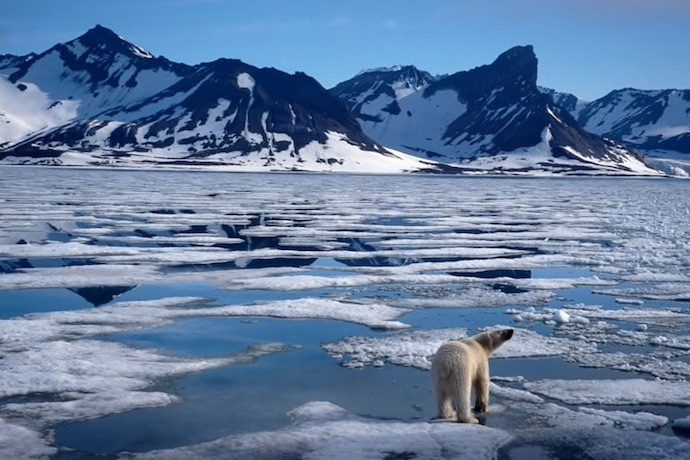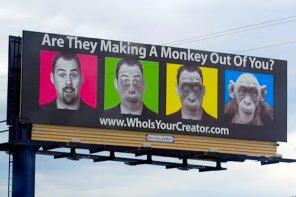The “world religions” suffer from their provenance. They are, one and all, children of the naively hopeful Holocene Epoch. Our species was born around 200,000 years ago, right at the end of the horrific Pleistocene, when, for two and half million years, the planet was roiled by glaciation and rampaging volcanic eruptions. It almost wiped us out. 75,000 years ago we were down to 15,000 fertile adults huddled in a corner of what we now call Ethiopia.
Then, 10,000 years ago, the earth, which has an erratic orbit around the sun, took a happy turn: we entered the comparatively gentle Holocene Epoch. Agriculture started and fertility boomed. No problem at first. There was always land to move to as we over-reproduced. And so it was that the most dangerous species ever to evolve spread over the planet.
As the good times rolled, we, like any nouveaux riches, got drunk with optimism. We quickly forgot what the violent earth, when stirred, can do to us. And it was in this heady mood that we fashioned our religions.
In the Beginning We Created God
The gods do not create us; we create them in our own image and likeness. For the most part, the gods we made were an ebulliently hopeful lot, reflecting the bonanza mood of the Holocene. It was easy then to imagine, as many did, a benign divinity presiding over the universe. Since not all was perfect, most religions also imagined some gods and devils wreaking mischief. After all, we still got sick, suffered, aged, and died; and the weather often whacked us; some evil deities explained that. Still we liked the idea of the top god being a kindly, parental sort.
The Vatican Council in 1870 gave a florid and typical expression to the “nice god” hypothesis. Its heart-warming words: “God, who created all things protects and governs everything in the universe with gentle sweetness and with strength.”
That is a lovely thought. But it does not square with what we know of the universe, or of our planet, with its five great extinctions that wiped out 95% of all living species. We preferred Hamlet’s take: “There is a divinity that shapes our ends rough hew them how we will.” Muck up the earth, the divinity will, like an indulgent parent, clean up the mess and tuck us in.
This “nice God” hypothesis does run into some knotty problems; take mosquitoes for example. What kind of a nice god would create blood-sucking, disease-spreading needles with wings? There is no “gentle sweetness” about malaria—or about the Ebola and Zika viruses, or tsunamis or childhood cancer. And beyond that, there is nothing nice—and something decidedly sociopathic—about an “intelligent designer” who would create a world where all species, including ours, are doomed to extinction.
In the secular response to theodicy, “technology” substitutes for “God.” Technology will protect us with “gentle sweetness” and “strength.” There is a technical fix for everything, so party on!
Then We Created the Anthropocene Epoch
The Holocene holiday is over. We wrecked it. We are now in the ominous Anthropocene Epoch, and the Sixth Great Extinction has us in its sights.
In the greatest act of collective denial in human history, we reject all the bad news, telling ourselves that the “nice god” or the “technology” won’t let that happen.
But here are the terrifying prospects:
With Arctic sea ice in a death spiral and the Greenland Ice Sheet melting, two-thirds of our coastal cities are threatened.
Almost 400 months in a row of temperatures above historic average. Warming oceans are putting hurricanes on steroids. Crop production goes down as heat goes up. Arable land diminishes and more people keep arriving.
Methane buried in the melting permafrost is a time bomb containing more heat trapping gases then we have produced since industry boomed two centuries ago.
The feeble Paris 2015 accord hoped to limit the heat-up to 2 degree Centigrade temperature rise above pre-industrial levels. Many climate scientists see that as a pipe dream and predict a rise to 4 degree C. As one scientist put it, the difference between 2 degrees and 4 degrees is human civilization. Scientist James Lovelock sees humanity reduced to 500 million people within a century huddling near the North and South Poles with the rest of the planet scorched and uninhabitable. Stephen Hawkings sees our plight as hopeless and urges plans to migrate into space.
Is There Any Hope?
Hopeful scientists like Johann Rockstrom say we have the technical genius (shown by dramatic advances in renewable energy and agriculture in countries like Holland, Germany, and Scandinavia) to extend life for a few centuries—if the planet goes fossil-fuel-free in twenty-five years. If not, it’s doomsday.
Bottom line: we may be able to slow the decline. But there is no deus ex machina. This one’s on us.





